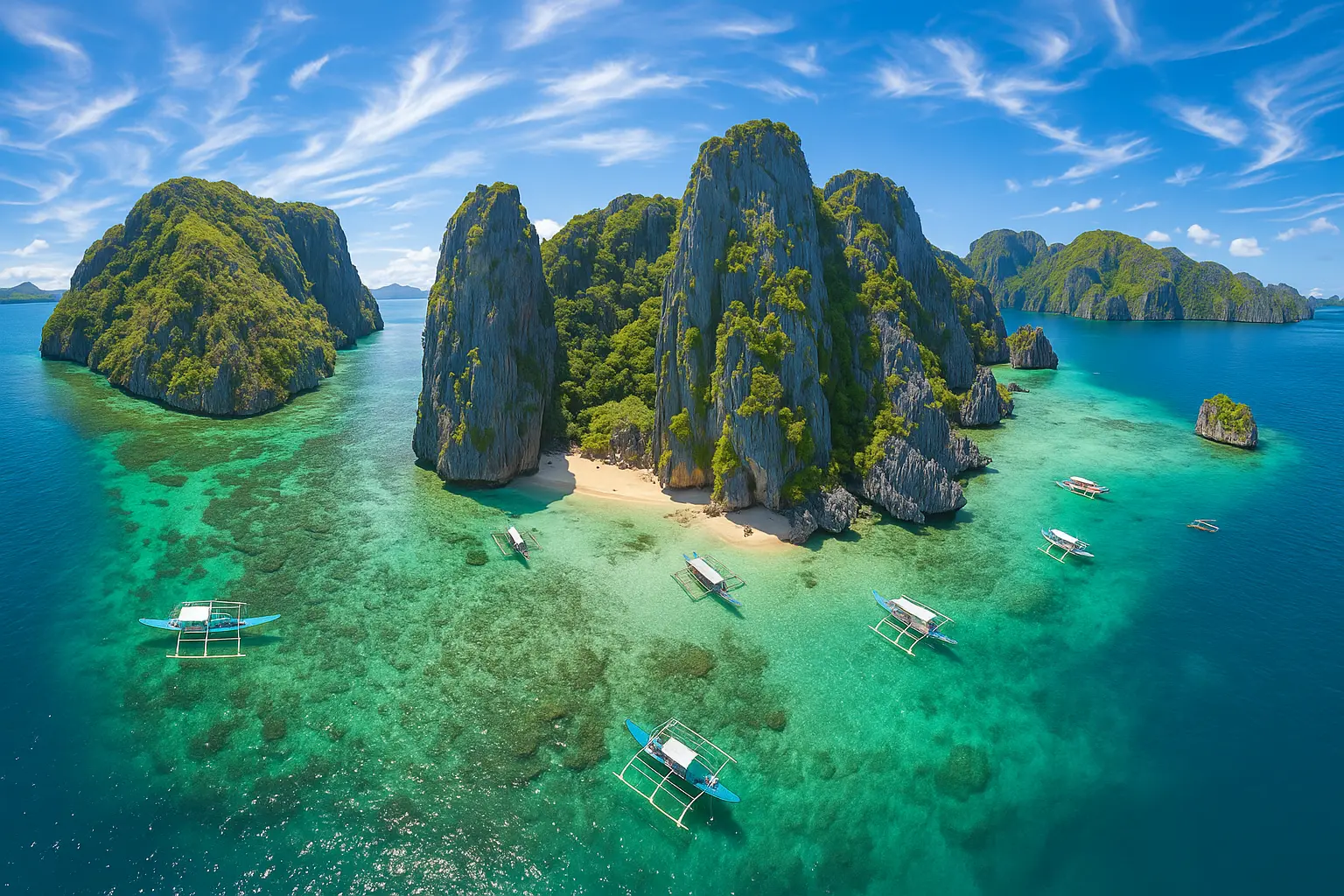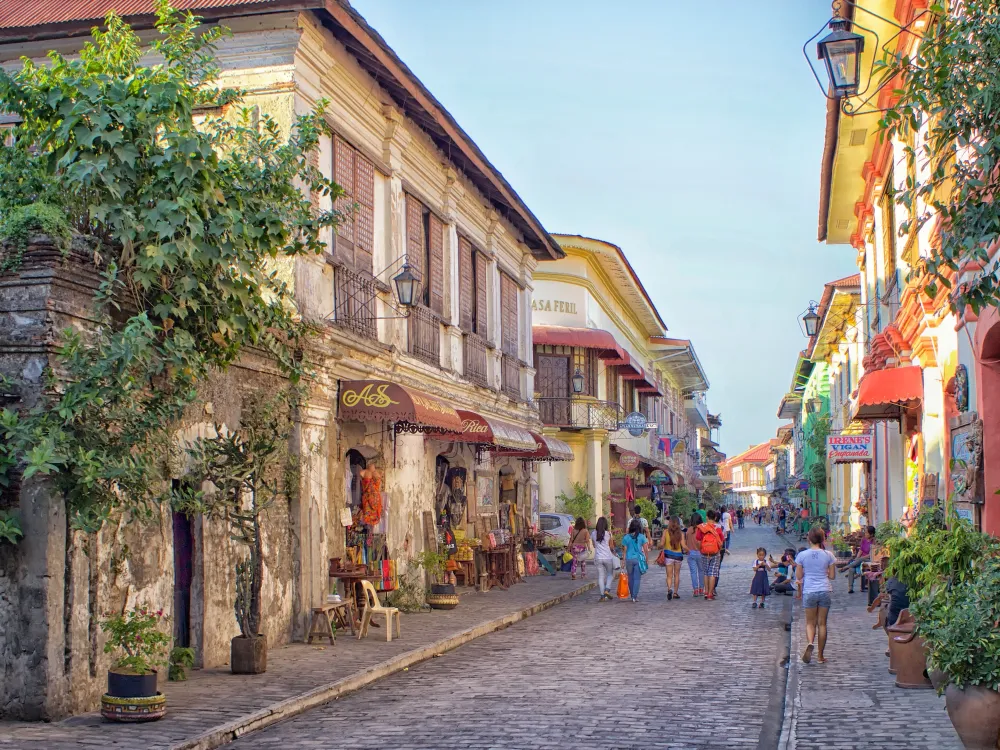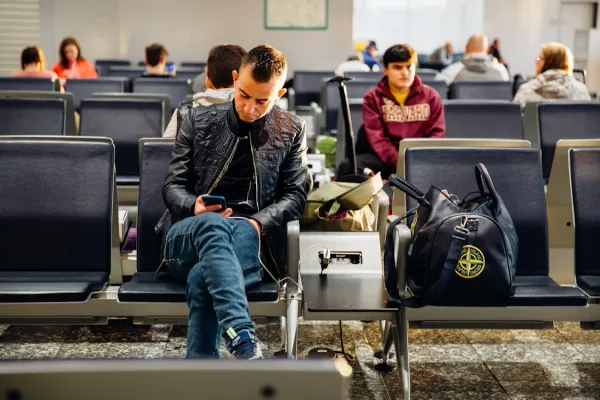Dreaming of Asia? How to Qualify for the Philippines’ New Digital Nomad Visa
For remote workers yearning for a fresh perspective and a tropical backdrop, the Philippines has unveiled a golden opportunity. The Southeast Asian archipelago, known for its powdery white beaches, vibrant festivals, and rich cultural tapestry, is set to introduce a digital nomad visa aimed at freelancers, creatives, tech workers, and other location-independent professionals.
This newly announced visa scheme, revealed by President Ferdinand “Bongbong” Marcos in late April, is designed to support the country's growing tourism sector while opening new doors for international remote workers seeking both lifestyle and productivity. Though official applications have not yet opened, the programme is anticipated to roll out in the coming months.
With the rise of the remote work revolution, the Philippines is positioning itself as more than a holiday destination, it’s aiming to become a hub for global digital talent. Here's a closer look at what this visa entails, who qualifies, and why it could be the perfect launchpad for your next chapter.
What Is the Philippines’ Digital Nomad Visa?
The digital nomad visa is part of a broader effort to modernise the Philippines’ immigration framework in response to changing global work trends. Recognising the influx of remote workers choosing lifestyle-driven locations, the visa is crafted to make long-term stays in the country legal, simple, and appealing.
This forward-thinking policy echoes similar schemes in countries like South Korea, Italy, Thailand, and Japan, all of which have introduced visa programmes to attract global talent and stimulate local economies. By focusing on non-immigrant, income-generating individuals who bring in foreign currency without taking local jobs, the Philippines seeks to build a sustainable model of economic growth rooted in cultural exchange.
Who Can Apply for the Philippines’ Digital Nomad Visa?
Whether you're a software developer logging into work from a beachside café or a marketing strategist hopping time zones, this visa could soon make your Philippine dream a reality. However, to maintain the integrity of the programme, there are some clear requirements in place.
To be eligible, applicants must:
Be at least 18 years of age – This ensures legal accountability and independence.
Work remotely using digital tools – That includes jobs in IT, design, writing, marketing, consultancy, education, and more. If your work can be done online, you're likely to qualify.
Prove a steady income from outside the Philippines – While specific income thresholds are yet to be announced, the focus will be on financial self-sufficiency. This prevents strain on local resources and supports applicants in sustaining their lifestyle.
Hold valid health insurance throughout their stay – This ensures access to healthcare while reducing the burden on the local system. Many global insurers now offer nomad-friendly plans tailored for long-term travel.
Have no criminal record – A clean background check will be required to ensure public safety and national security.
Not work for or be employed within the Philippines – This visa is strictly for those whose income comes from abroad, not the domestic job market.
Visa holders will initially be granted a one-year stay, with the option to renew for a second year. This flexibility makes it ideal for slow travellers and those interested in long-term cultural immersion.
Why the Philippines Appeals to Digital Nomads
The Philippines is more than just a pretty postcard—it’s a deeply enriching destination where history, hospitality, and natural wonders intersect. With over 7,600 islands, remote workers can swap concrete jungles for turquoise waters, volcanic mountain treks, and historic colonial towns without sacrificing connectivity.
Major cities like Manila, Cebu, and Davao offer reliable internet infrastructure, co-working spaces, and thriving expat communities. Meanwhile, places like Siargao and El Nido provide an escape for those looking to live closer to nature, ideal for photographers, writers, and creatives in search of inspiration.
From bustling street food scenes and colourful Sinulog and Ati-Atihan festivals, to ancient rice terraces and centuries-old churches, the country caters to history buffs, adventure seekers, and leisure lovers alike. Whether you're into surfing, scuba diving, hiking, or city-hopping, the diversity of landscapes and experiences makes the Philippines a compelling choice for digital nomads of all interests.
How the Philippines Stands Out Among Digital Nomad Destinations
While many countries are racing to attract remote workers, the Philippines brings something uniquely powerful to the table: genuine hospitality and a strong English-speaking population, making daily life and integration remarkably smooth for foreigners.
The local culture places immense value on community, friendliness, and respect, traits that help newcomers feel at home quickly. Even in more rural areas, travellers report feeling welcomed with open arms. Combined with the country’s affordable cost of living and low barriers to entry, it’s no surprise that the Philippines is fast becoming a sought-after location for location-independent professionals.
It also helps that the country’s digital ecosystem is evolving quickly. Major hubs now boast fast fibre internet, while many rural and tourist areas are investing in improved connectivity, enabling remote work in even the most idyllic corners of the islands.

What’s Next for Applicants?
Although the visa is not yet available for application, officials have confirmed that it’s in the final stages of implementation. Prospective applicants are encouraged to monitor updates from the Philippine Department of Foreign Affairs (DFA) and the Bureau of Immigration in the coming weeks.
In the meantime, those interested can begin preparing by gathering the required documents: proof of income, insurance coverage, criminal background checks, and a valid passport. Exploring different regions and planning your long-term stay strategy can also help you hit the ground running once the visa opens.
Final Thoughts
The Philippines' digital nomad visa is more than just a permit, it’s an invitation to reimagine how and where you work. It’s about trading stress for sunsets, replacing commutes with coastline strolls, and joining a global movement of people designing their lives with intention.
While the programme is still in the pipeline, its arrival reflects a growing recognition of the digital workforce’s impact and its potential to bring the world a little closer, one island at a time.





